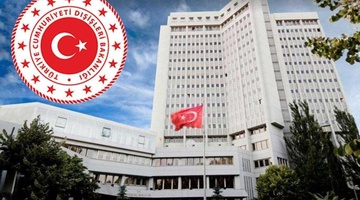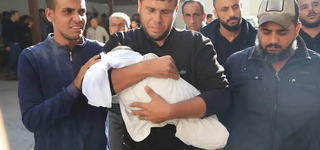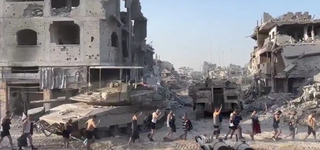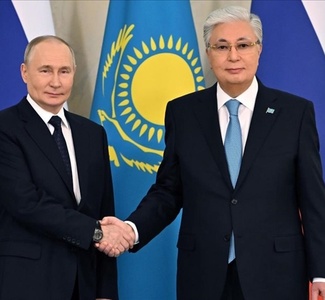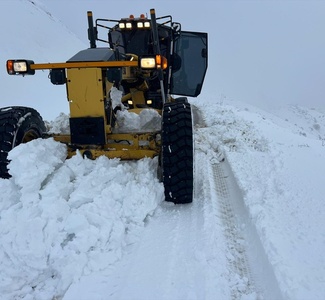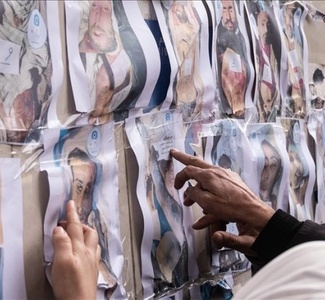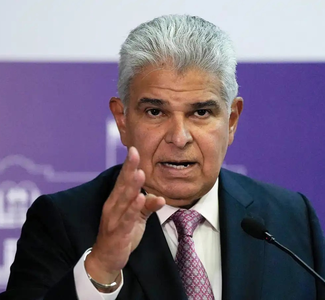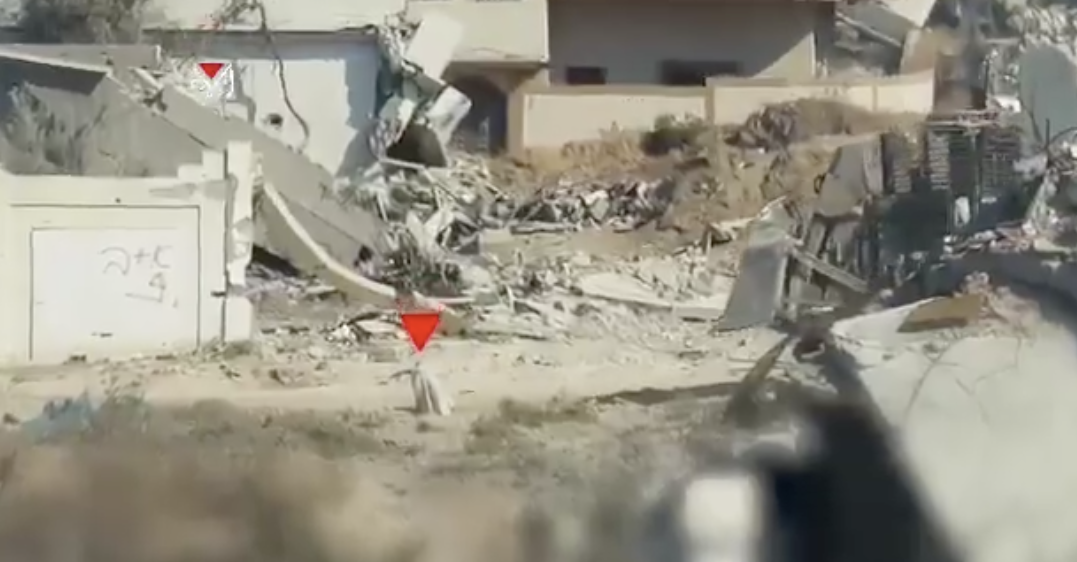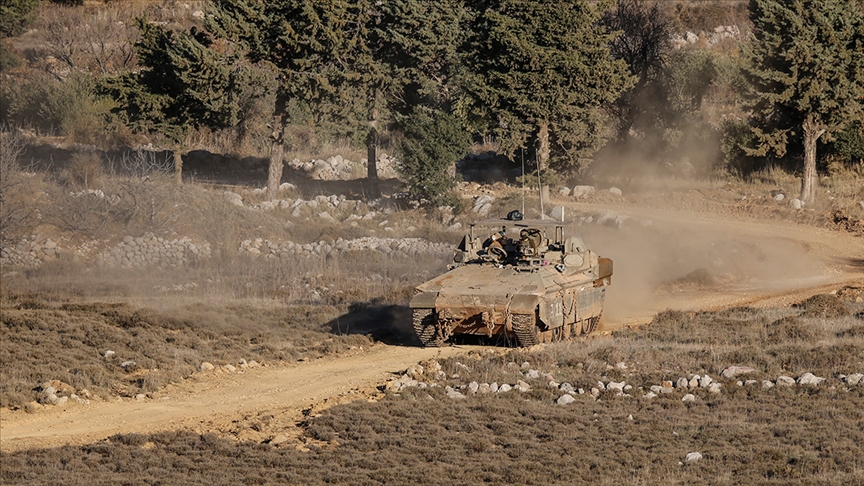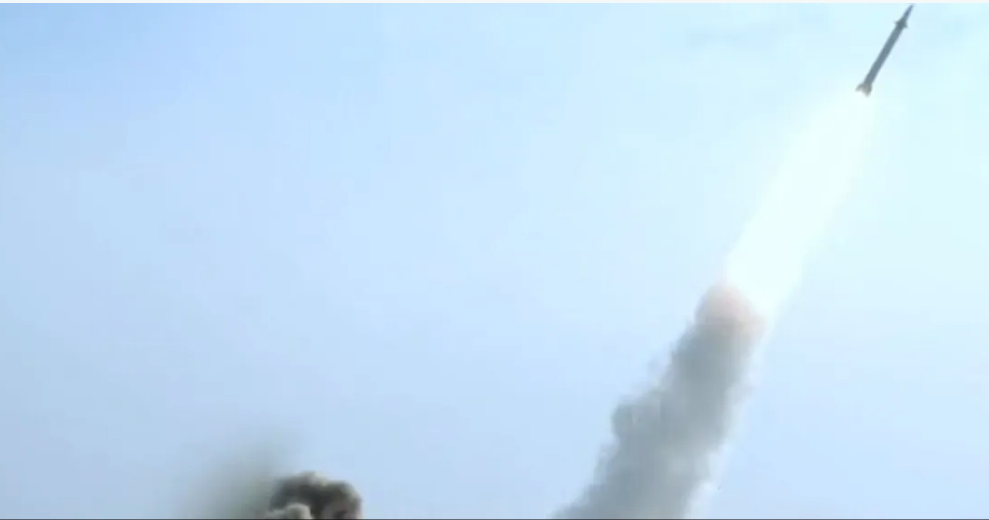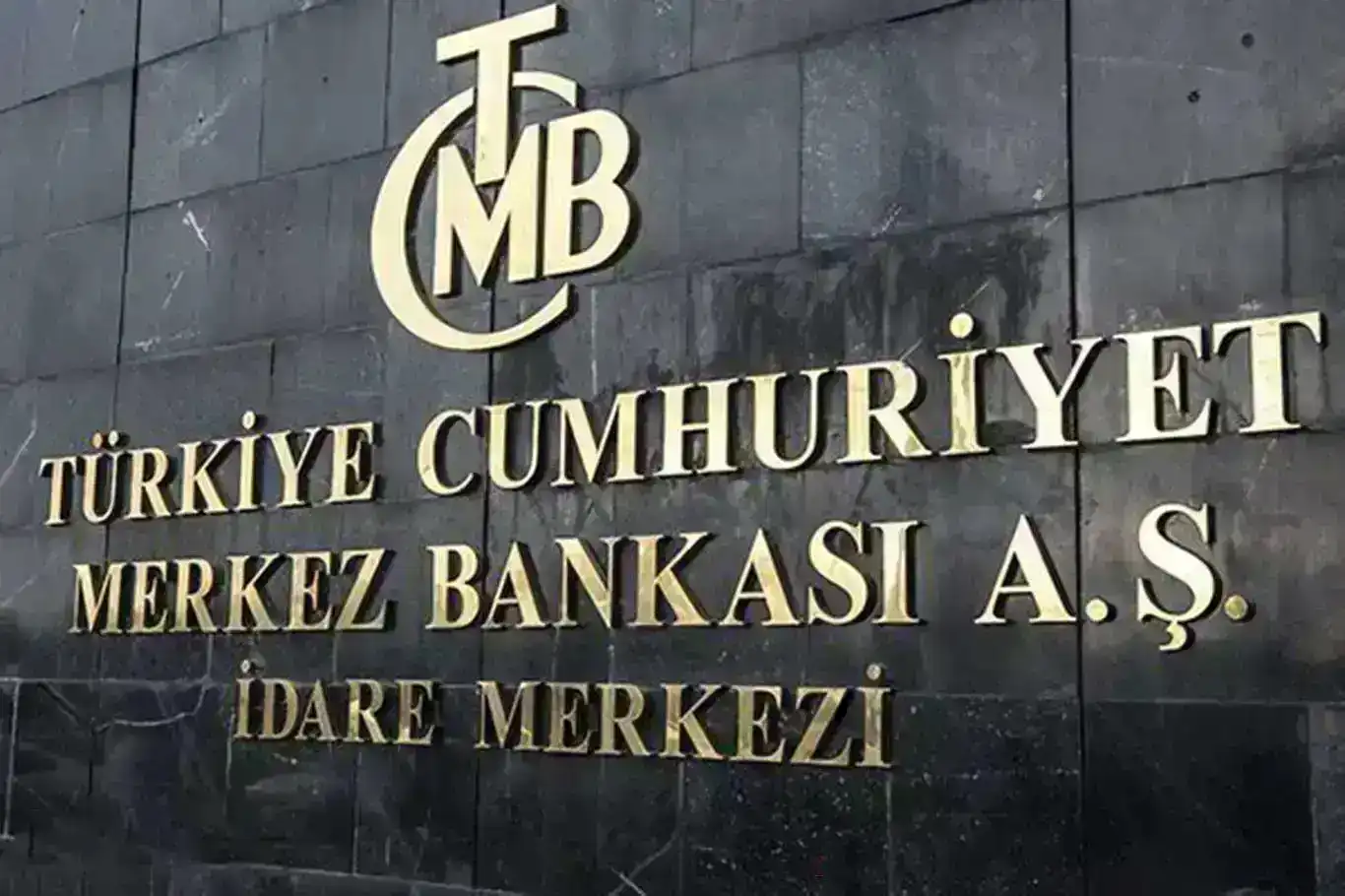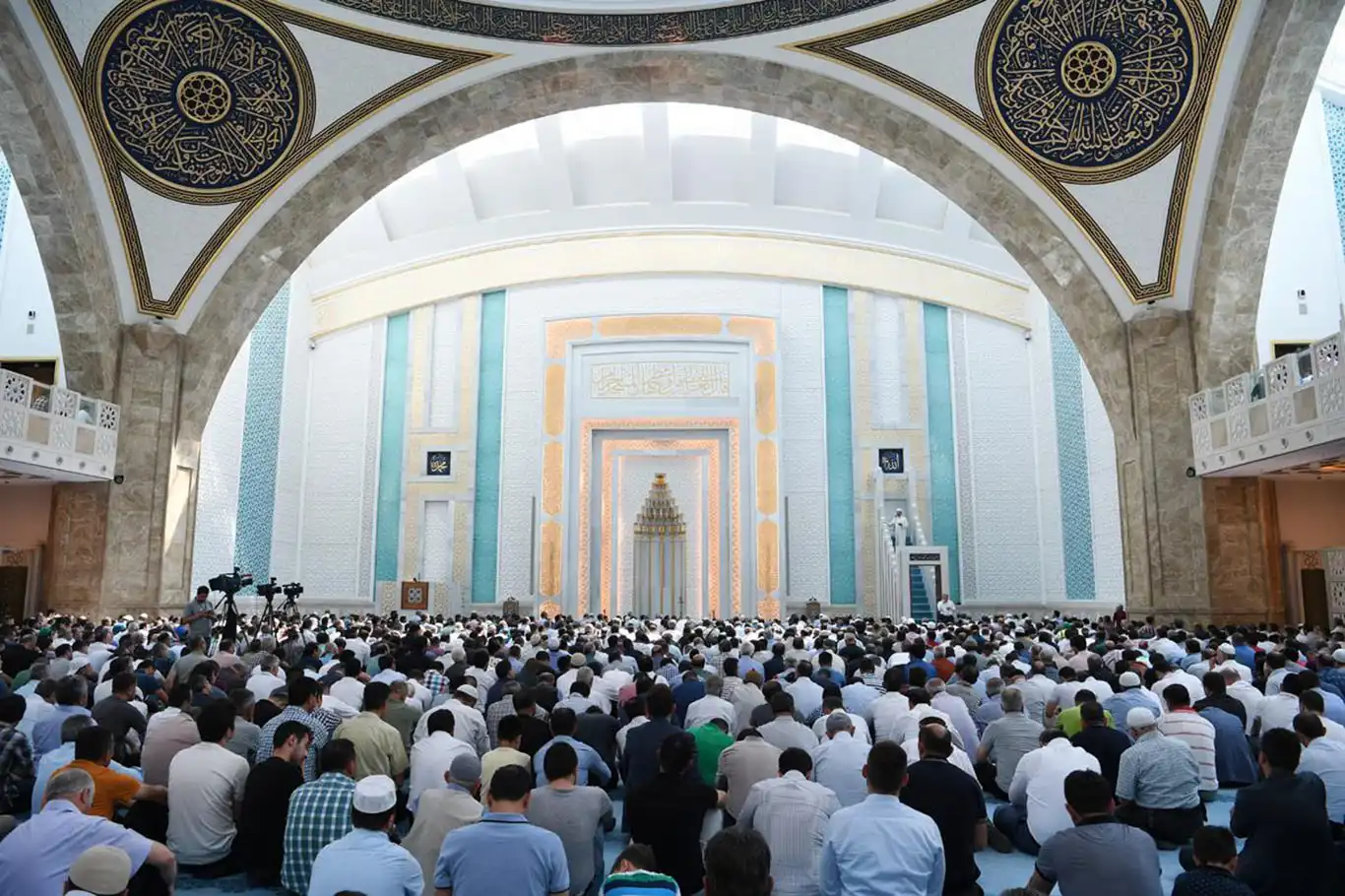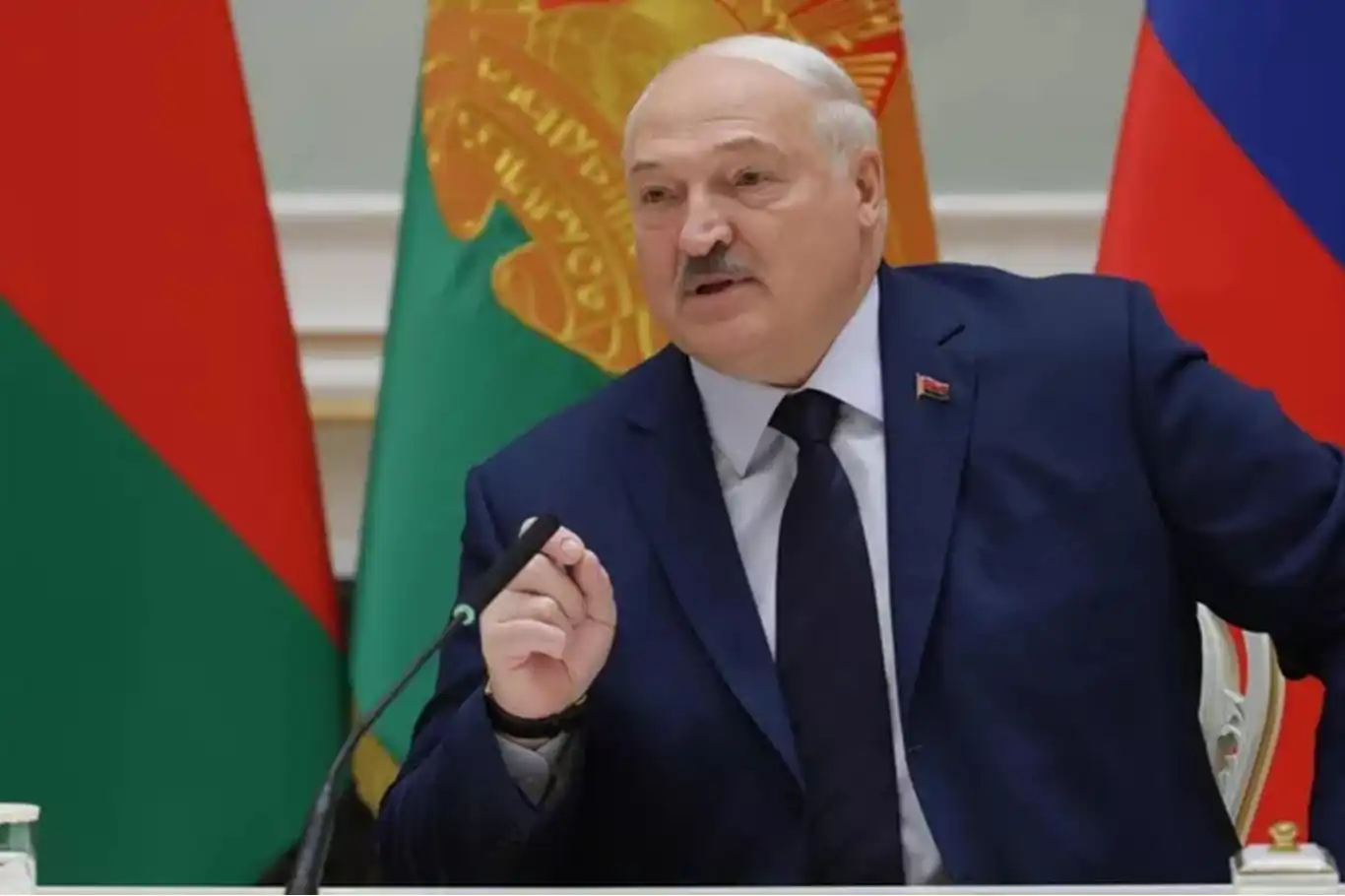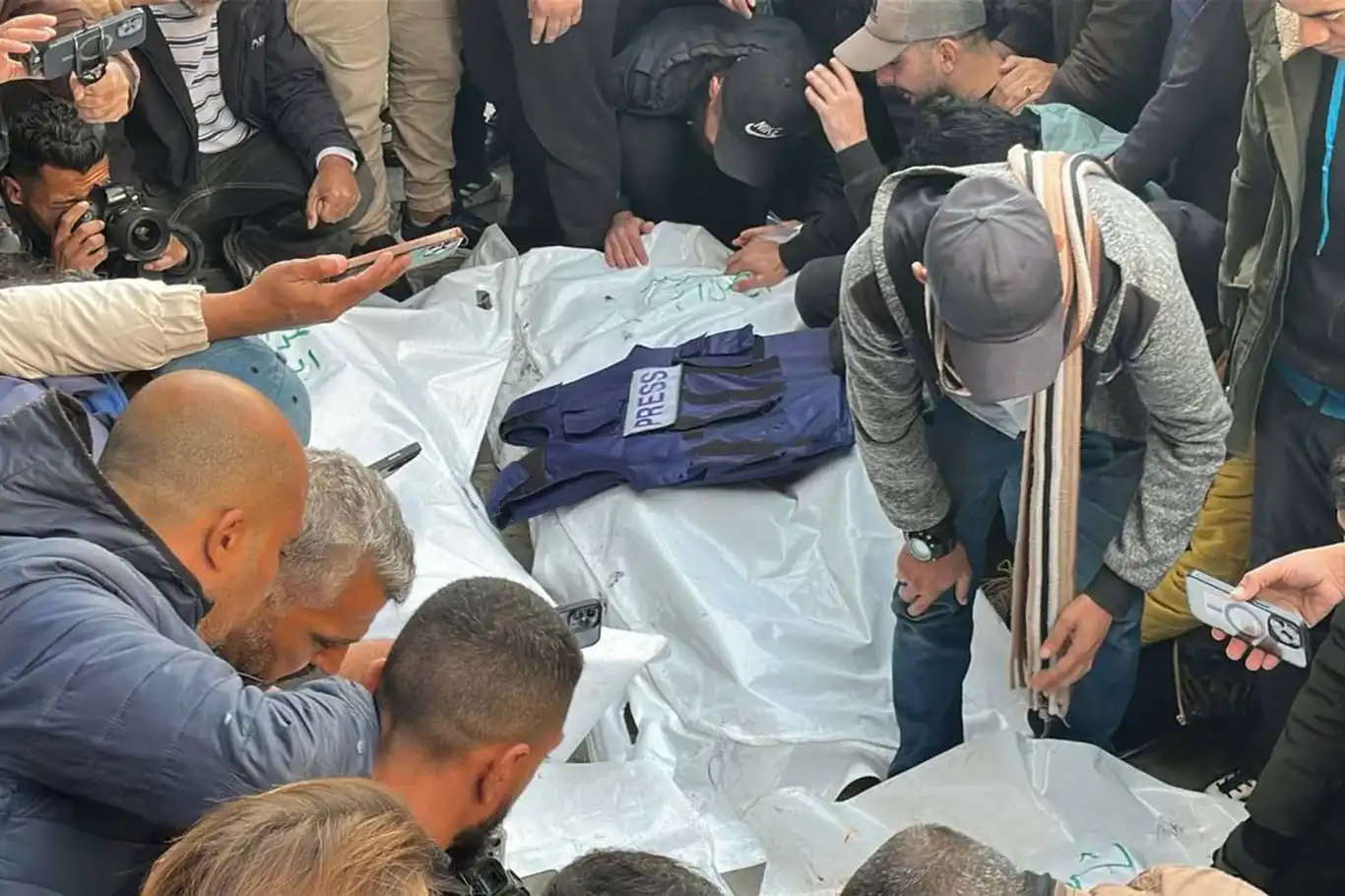History of PKK's massacres
The anniversary of the Hamzali massacre in Kulp district of Diyarbakır province of southeast Turkey on January 26, 1995, has reminded the PKK's bloody past once more.
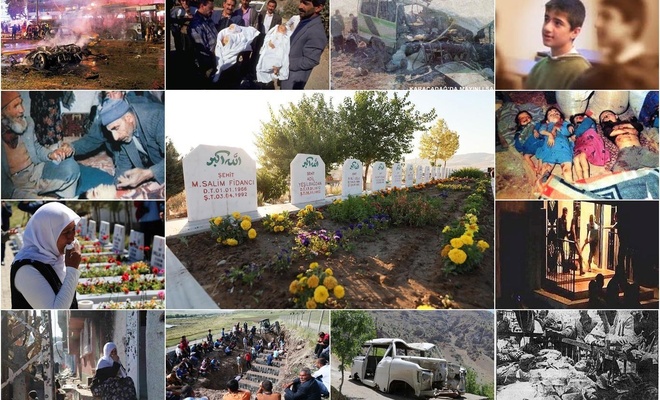
 Google News'te Doğruhaber'e abone olun.
Google News'te Doğruhaber'e abone olun. Since its establishment, the PKK, which has committed many massacres, carried out brutal attacks occasionally in the village squares killed without discriminate between children, women and elderly and sometimes raid on mosques.
The massacres that the PKK has been carrying out since the years 1980 and 1990 have not been erased from memory. The PKK, founded in 1978, made its first attacks on August 15, 1984, in Şemdinli district of Hakkari province and Eruh district of Siirt province. Those attacks were the beginning of an era in Turkey.
The attacks carried out by the PKK, which have not pointed on one target and slaughtered children and women in those attacks, have caused a great suffering for families that cannot be erased from memories.
The anniversary of the mosque massacre in Susa village of Silvan district of Diyarbakır on June 26, 1992, has reminded the PKK's bloody past once more.
Here are some examples from the massacres of the PKK:
Ortabağ massacre
On January 22, 1987, 2 children, 4 women and 8 villagers were massacred in the bombing attack carried out by the PKK on a wedding house in the village of Ortabağ in the province of Uludere, Şırnak. The PKK got on the roof of the wedding house, attacked people with hand grenades, and committed a massacre there. Eight people were killed and 15 people were wounded in that attack. The PKK's publication wanted to legitimize the attack by stating that the deceased children and women belonged to village guard families.
Başyurt [Zaxuran] village Efeler [Gündikêporti] hamlet massacre
On January 23, 1987, in Midyat, district of Mardin, the PKK killed by 10 villagers. Emine Akçay, who lost 4 children as a mother and her husband as a wife, said: "My husband and 4 children were slaughtered in front of my eyes. I was saved during the attack because I was out of the house. At first, they threw hand grenades. Then they raked on my house. My oldest child was 7-years-old. My daughters were aged 1.5, 3 and 6. They have had me the grief of losing children."
Pınarcık village massacre
On June 20, 1987, the PKK, which raided on the Pınarcık village of Mardin's Ömerli district, killed a total of 30 people, including 16 children, 6 women, 8 men. Şeyhmus Yavuz, who lost his wife, 5 children, 2 brothers and nephews on the attack, said that the PKK attacked from 3 wings on the evening of June 20, 1987. Expressing that he was a village guard in that time, said: "The PKK got into the village after we ran out of bullets. They executed 30 people, including my wife and children in the village."
Yuvalı [Anıklı] village Haraberk hamlet massacre
On July 8, 1987, the PKK attacked the Haraberk village of Yuvalı [Anıklı] village of Mardin's Midyat district slaughtered 9 people, including 7 children and 2 women from the same family. At the same time, another PKK group attacked the village of Peçenek, 20 minutes away from the village of Yuvali, raked 16 people without discriminating against women and children. After the massacre in Yuvali village, a mine laid by the PKK on Yuvalı-Midyat road blew the minibus, which was carrying the surrounding villagers, who were going to convey their condolences. Some 3 people were killed and 13 others were injured in the attack. The PKK undertook the massacres in its publication body in Serxwebun, in July 1987.
Çiftekavak hamlet Massacre
September 21, 1987, the PKK raided on Çiftekavak hamlet near Güneyce village in Şırnak killed 11 people, including 5 women, 2 were pregnant, and 4 children, 2 other people were seriously injured. The 25-members PKK group, which raided on the Çiftekavak hamlet in the evening at 21.00, first attacked on 3 houses with hand grenades, belong to Rifat Güngören. Huri Güngör, a survivor of the attack, said: "A few armed people entered our house first. They asked my father, "Where is your son Ahmet, why do not you give him to us?" Then they fired on us. My parents, my uncle, my grandfather died there. Then they run away. Then the soldier came." The PKK has undertaken the massacre in Serxwebun in September 1987 issue.
Yağızoymak massacre
On March 28, 1988, the PKK members attacked Yağızoymak village of Şırnak. This time they targeted village shepherds. The PKK executed 9 shepherds. In the statement made by the organization, it was alleged that shepherds were killed because they were village guards.
Behmenin hamlet massacre
On May 9, 1988, the PKK raided the village of Behmenin hamlet near Taş village, in Mardin's Nusaybin district, killed 11 people, including 8 children and 2 women from the same family. The names of the people who lost their lives in the same family are as follows: Ayşe Çelik (2-months-old), Fikriye Çelik (2-years-old), Narine Çelik (3-years-old), Fadime Çelik (5-year-old), Muslime Çelik (7-years-old), Niyazi Çelik (9-years-old), Abdurrahim Çelik (12-years-old), Ziver Çelik (15-years-old), Hatice Çelik (35-years-old), Abdulkerim Çelik (47-years-old) and Feride Bozkurt (40-years-old).
Ikiyaka [Satê] village massacre
One of the countless massacres of the PKK against the Kurdish people in the East and Southeast Turkiye carried out on November 24, 1989, in the village of Ikiyaka [Satê] in Yüksekova district of Hakkâri. A girl named Elif, who was killed by the PKK in the massacre, was not even one-year-old. In the same massacre; Mustafa 2, Halime 4, Rıfat 3 and Cebrail was 5-years-old. Twenty-eight people were murdered including children, elderly, infants, and women. When it got dark in the village, the PKK elements got closer to the village, held shepherds Kemal Doğan, Mehmet Resit Aykut, Abdurrahman Gezginci, Ekrem Boz and Mehmet Kırbış near the village. On the night of November 24, the PKK attacked Aykut's family with the rocket launcher and hand grenades. At the same time, they fired on the house with automatic weapons. Then they collected all, including women and children and opened fire on them. Also, 300 sheep belong to Aykut and Boz families, who were targeted in the Ikiyaka massacre, were taken by the PKK.
Çevrimli massacre
A group of 50 PKK members raided on Çevrimli village in Şırnak's Güçlükonak district at around the time of 23.00 pm. at night on June 10 to 11. A conflict broke out between the village guards and the PKK has been on for about two hours. Meanwhile, a group of PKK elements attacked the houses of village guards with firebombs and rocket launchers. 27 people, most of them women and children, burned to death in the guards' houses. It was learned that 4 of the deceased were village guards. While 6 villagers were wounded, 1 PKK was killed as a result of the fire that the guards opened.
Pazarcık and Çağlayancerit massacres
On July 14, 1991, the PKK raided on villages in Pazarcık and Çağlayancerit districts burned 9 villagers to death. The bodies of 9 villagers, including women and children who lost their lives in the attack carried out by automatic weapons and bombs, were set on fire by the PKK elements. In the PKK's press organ Serxwebûn, murders were cited as 'spies and informers'.
Sütlü hamlet massacre
On 11 June 1992, the PKK, which stopped a minibus in the town of Tatvan in Bitlis, slaughtered 13 people from the minibus. Zemirhan Işık, one of the inhabitants of Kokarsu village who lost his brother in the attack, reminded that 13 people, including his brother, were killed in the Sütlü hamlet in the late evening. Explaining that they went to the scene when they were informed and they saw that 13 of people were massacred in a line.
Susa village massacre
In the 90s, the PKK did not hesitate to massacre in the mosques, increasing the severity of the massacres carried out towards the region, in particular, the Islamic sensitive person.
The "Susa Mosque Massacre" comes forward as one of the most barbarity massacre committed by the PKK in the Kurdistan region. Muslims who worshiped in the mosque of Susa [Yolaç] village, in Silvan district of Diyarbakır, was killed in the yard of the village mosque after the Isha prayer on June 26, 1992. Ten Muslims were martyred and five were injured in the massacre. The pain of this barbarity massacre carried out by a group of the PKK who raided by wearing soldier, in the yard of village mosque, still fresh despite the passing 26 years.
The massacre of Susa appeared in Kurdistan territory as a process of hostility towards Islam, intolerance to the sanctity of Islam, arrogance towards Islamic signs, and hatred and admiration for Muslims attached to their religion. The yard of the mosque has turned into a bloodbath, and the humanity has once again witnessed a great barbarity.
Hacı Ahmet and his son Muhammed Emin Kantar, Zeki, Medeni, Said and Meki Fidancı brothers, Muhammad Ali Uslu, mosque imam Abdulhalik Ugaş, Adnan Kantar and Hüseyin Çetinkaya were martyred and 5 other people were wounded in the massacre.
Cevizdalı [Hewek] village massacre
On October 21, 1992, the PKK, which raided on the Cevizdali village of Bitlis during the nighttime, slaughtered 30 people, including 8 children, and wounded 20 others. The PKK, who took women and children as hostage, asked the village guards to lay down their weapons. The PKK then burned whole the village by the news they received that soldiers are on the way to the village.
Başbağlar massacre
In the village of Başbağlar, in Kemaliye district of Erzincan, the PKK once again shed the blood of believers with the calendar pages showing July 5, 1993. The PKK, which massacred 28 Muslims at the Başbağlar Mosque, at the time of the evening prayer, including mosque Imam Adil, set the village to the fire. Some 5 people were burned to death in the houses set on fire. The PKK, which plundered women's jewelry, also left a ruined village with 70 orphans in the back.
One of the eyewitnesses of my massacre said, "My grandson, who came to the mosque just before we start for the evening prayer. Told us that the anarchists had raided on the village. So I immediately shut the door, and they saw me when I closed the door. They came and asked me to open the door, but I didn't. Then they went away. We performed our pray and started to pray. I looked in the window; they broke the neighbor's door, took out the man in the house. Then they came to our house. They broke the door, at that time; I offered them the money I had in my pocket. They took it and forced my daughter in law, my grandchild and me to go out. I noticed that they lay bomb into one of the room just before I leave the house. They set the house into the fire after we left the house. I dragged me even I said I am an old and ill man. They planted bombs around us. One other side, they were burning houses and vehicles in the village. They murdered 28 people without batting an eyelid. Our village burned down until the morning. We could not inform anyone because there was no phone."
Derince village massacre
On October 21, 1993, the PKK executed 22 people, including 13 children in the yard of the school in Derince village of Baykan district of Siirt. A group of PKK, who raided the village, murdered 22 people, including a 3-month-old baby and pregnant women of Erdem's family members. A witness of the massacre Zaman Erdem said that his wife, his 3 children, his mother, his older brother, and nephews also killed in the massacre.
Erdem, who stated that the people were living at that time were between two fires, said: "At that time I was a village guard. People who were not village guards were persecuted by the state, and when they became guards, they were persecuted by the PKK. We, who caught between two fires, became village guard to protect our village and make a living. I was on the watch the attack carried out. We had a conflict with neither the state nor the PKK until that day. Suddenly gun sounds raised from the village. We also responded to the gunfire. We were unaware that they [the PKK] had collected our children in the school and killed them while we were in the conflict. I found one of my relative [woman] in blood laying on the ground while I was running to the entrance of the village. I was passing by the school and I was shocked by the scene I saw there. Bodies of women and children piled up in the yard of the school. They even killed a 3-months-old baby with the mother. The screams of the wounded could be heard. In that massacre, my uncle's daughter who came from Istanbul to here and her two children also slaughtered. The conflict lasted three and a half hours that day. But the troops [Turkish soldiers] did not come on time."
Rukiye Erdem explained the moments of the horror of that day as follows: "At around nine o'clock in the evening, we were sitting at home, suddenly the sound of guns echoed. I went out and heard cries rose. I went toward school where I could hear more cries. I was shocked by the scene I saw there. The bodies of women and children gathered there were all in blood and corps were piled up. A pregnant woman lying in blood on the ground asked for help. She couldn't get up. I helped her, leaned her back on the school's wall. By the way, the bullets were like rain in the village. The PKK group was crowded. They were not able to enter the village completely because of the response of the guards. There killed whomever, women and children, they found on the upper side of the village. One of the murdered child "Do not kill me, I am an orphan, I have no mother," asked from the PKK elements, but they even slaughtered him."
Yavi town massacre
On October 25, 1993, the PKK raided the Yavi town neat Çat district of Erzurum, killed 35 people and injured 50 other people, they gathered in the teahouse of the village. The PKK elements raided the village by a truck they captured at around 19.30, fired on unarmed people, who gathered at the teahouse watching the news and killed 35 people there. Around 50 other people were injured in the attack. Details about the massacre of the Yavi village, which was attacked by the PKK, unveiled years later. It was understood that the PKK had raided on Yavi by wearing military camouflage uniform and cut the telephone lines to prevent communication.
İsmail Tanelçi, a PKK member who was released on December 5, 2006, claimed, "The murder of 35 people in the village of Yavi in the Erzurum Çat district came from our province responsible in 1993. The aim was to revenge against government's massacre in the district of Lice. A pro-state village was chosen for that. 'Cesur' codenamed person did planning and management. The attacker group gathered villagers in the teahouse and killed all. I didn't attend to the attack. Cesur, Emin, Piroz, Rojhat and Dilbirin codenamed people have carried out the attack as I know."
The massacre at forestalling in Maden district
On January 1, 1994, the PKK killed eight passengers they got off from two busses they stopped on the highway of Elazığ's Maden. The PKK, which undertaken the massacre in their Serxwebûn publication, killed 8 people on the pretext that they were from DYP [a political party]. During the ID examination, the state officers were determined and murdered.
"Karacadağ mine martyrs"
The minibus carrying 50 people, including females, children and elderly people, who were going from Gogwêrin [Yıllarca] village to Diyarbakır for shopping of Eid of Ramadan, hit the mine laid by PKK elements on Çınar-Diyarbakır road on March 10, 1994, at the daytime of Layla al-Qadr. Some 11 people were martyred and 40 other people were injured. There were 2 aged 11 children among the martyrs.
The relatives who reported that the only crimes of the martyrs were to submit to Allah and fulfill the orders of Islam, saying, "The PKK continued its policy of suppression against those who did not submit to them in the 1990s. Residents of Karacadag's Gogweri village were constantly threatened because they did not submit to the PKK, and eventually they lost their lives in the mine explosion that was laid on the village road."
The "Karacadağ Mine Martyrs" are being commemorated every year on the anniversary of martyred 11 people upon their graves. , are buried at the head of their graves with intensive attendance of their relatives and their loved ones. The names of martyrs who lost their lives at the explosion of the mine laid on the way to the village of Gogwerî are; İbrahim Dağtekin, Mele Hıdır Akyol, Bedri Soysal, Muhammed Halil Gölçer, Muhammed Emin Gölçer, Tacettin Parlak, Halil Demir, Kutbettin Ayhan, Muhammed Ayhan, Hacı Ramazan Yeşil and Ramazan Gölce.
Ormancık and Akyürek massacres
On January 21, 1994, the PKK, which attacked the Ormancık and Akyürek villages in Savur district of Mardin, killed 21 people, including 11 children.
Two separate PKK groups attacked the Ormancık and Akyürek villages of Savur on January 21, at around 21:00 hours. The conflict over the response of the village guards lasted until the early hours of the morning. Four of the guards have lost their lives. The women and children who were afraid of conflict were sheltered in a house. The PKK targeted the house where the women and children were hiding. First, took the house under heavy gunfire, and then targeted the house with hand grenades and gas bombs. During the explosions, 15 people died at the scene. Eight people who were seriously injured by the gas bomb were taken to the Mardin State Hospital. Two of the wounded later lost their lives in the hospital. Temporary village guards also reportedly killed two of the PKK. The PKK has undertaken the massacre in Serxwebun.
Serdiren mine workers massacre
On September 5, 1995, the PKK, who raided on a mine near Hatay's Samandağ district of Seldiren village, killed 9 of the miners. One of the workers saved as wounded. According to the statement given by the Governor of Hatay, approximately 15 PKK elements has killed 11 workers in the special chrome mine near the village of Seldiren. The PKK group asked 2 workers to bring food from Antakya with a truck of mining company and threatened to kill other workers if they are late, read the report.
Upon the announcement of the troops, the mine area was encircled at 5 pm. The troops noticed that the PKK killed 15 workers when they reached to the mine. The massacre was announced in the September 1995 issue of the PKK's own publication Serxwebun as "12 soldiers, civilians and fascists were killed."
Darıkent town massacre
On the first day of the school on September 11, 1994, a group of PKK gathered 6 teachers at the town center of Darıkent in Mazgirt district of Tunceli and killed them there.
The incident happened like this: A group of PKK consist of 40 elements, raided on the Darıkent town at the night before 22.30. A part of the PKK group, which cut off the electricity and telephone lines in the district, attacked the police station and a scone part, who took teachers from their houses, has gathered people in the town square. The PKK, who propagated for a while, then massacred 6 teachers. When the PKK left the area, they also kidnapped health officers Mustafa Demirtaş, Hüseyin Vural and Kazım Kılınç and 3 other girls, whose names not learned. Nine other teachers, who were hiding in another house in the town, were saved from the massacre.
A group of PKK elements, including 2 women, raided on the Akçaşehir village Demiriz train station on August 13, 1996, in Sivas' Kangal district. The PKK group killed 8 there, including 6 of TCDD [Turkish State Railways] workers.
On November 8, 1996, PKK members carried out a rocket attack on a minibus in Köprülü village of Hakkâri's Çukurca district. Seventeen people were killed in the attack, including twelve village guards, and eight other people were injured.
On December 15, 1997, a minibus carrying villages from Yoncalı village to Mardin's Dargeçit district hit a mine laid by PKK under the road near Temelli village. Some 12 people were killed and 12 other people were injured.
Diyarbakır Koşuyolu Park massacre
On September 13, 2006, a bomb was detonated in Diyarbakır near Koşuyolu Park, where the families went to rest. Some 11 people, including a baby, were killed, 17 other people injured. The suspects Hikmet Topal, Burhan Güneş and Murat Ekin, who were arrested after the explosion, received 845 years imprisonment with aggravated life for 11 times. The families who participated in the trials wanted the bombers to shatter into pieces like their children.
In the trial, which was seen at Diyarbakır Heavy Penal Court No. 5, the prosecutor stated that Topal's elder brother was murdered while he was serving as a militia for PKK in the mountains, while Güneş had been involved in the organization since high school years.
Private teaching institution attack
On January 3, 2008, on Selahattin Yazıcıoğlu Street, one of the city's most crowded places, a bomb-laden vehicle parked in front of a private teaching institution in the Yenişehir District of Diyarbakır city center was detonated by PKK member Erdal Polat by the remote control during the passage of the military service bus. Students of private teaching institution Eren Şahin, Rıdvan Süer, Ferhat Mutlu, Engin Taşkın, Salih Ekinci, Melek İpek and a worker of Diyarbakır's courthouse named Cengiz Kaya lost their lives in the attack, while 68 other people, including 30 soldiers were injured.
Six people who aiding and abetting with the PKK elements Erdal Polat were tried at the Diyarbakır 5th Heavy Penal Court. Erdal Polat, who carried out a bombed attack resulting in the death of 7 people, including 6 students and injured 68 people, was sentenced to a life imprisonment of 9 times and a total of 75 years in prison.
The other five defendants were sentenced to 6 years and 3 months' imprisonment for aiding and abetting. Erdal Polat joined the PKK in 2002 and crossed to Turkiye from Zap region and came to Diyarbakır's Lice countryside after received military and political training in northern Iraq, in Hakurk, Hınere, Şehidan camps and in the Qandil Mountain. Upon the death of the students in the attack, the PKK had not undertaken the incident before, but after Polat was arrested, the PKK had to undertake the attack.
Güngören attack
On July 27, 2008, an explosion took place on the pedestrian road, which is closed to vehicles in Istanbul Güngören in Güven Neighborhood on Kanal Street during the crown hours at around 21.55 pm. During the explosion, which was supposed to take place in the natural gas pipe, there was a woman in the environment and some people were in the blood. In order to help the wounded on the ground, the people began to gather where the explosion occurred. Eyewitnesses notified the police and health teams.
About 10 minutes after this explosion, another bigger explosion took place at about 50 meters away from the scene. In the second explosion prepared as a trap, the street turned into the battlefield area. As the human parts were scattered around, the street turned to the bloodbath.
PKK member Mahmut Kiraç, who used the code names "İrfan" in the city and "Azad" in the countryside, carried out the bombing attack. Many PKK surrendered stated that the person who carried out the action in Güngören was the PKK with the code Azad. The latest surrendered PKK member Baran code-named H.K. stated that Azad code-named Mahmut Kiraç carried out the attack in Güngören. The PKK member Kiraç was killed in operations carried out in Şemdinli and Çukurca regions. His funeral diagnosed by his family.
Four young girls were murdered in Siirt
The PKK targeted six young girls on September 20, 2011. Zeynep Evin, while driving in the car with her friends, the PKK fired at the car. Four of the young girls in the car lost their lives, 1 other was injured.
On September 20, 2011, the PKK attacked a civilian car with arms during the evening time. Nergiz Evin 22, her sister Zeynep Evin 31, Nurcan Olgaç and Kevser Çekin 20, were killed, while Nuran home 20, was severely wounded. It turned out that the murder of the young girls was Muhammad Tekgül, who was killed in a clash on November 4, 2011, in Peyamlı village in Siirt's Eruh, approximately 1.5 months after the event.
It was understood that 13 shells in the car belonged to the gun fired from Muhammad's weapon. Muhammad's fingerprint was found on the surface of the doorway and on the door of the vehicle. It was stated that the same weapon was also used in the assault on 6 July 2010 in Batman's Vergili Gendarmerie Station in Gercüş district of Batman when Mustafa Tekgül, whose 3 months left to complete his military service, was killed.
Merasim Street attack
On February 17, 2016, 28 people, including civilians, were killed while 61 people were injured while 1 person lost his life at the hospital he was treated in the explosion took place in Ankara's Çankaya. Within the scope of the investigation carried out after the attack, arrests warrant were made against 48 people including PKK executives Zübeyir Aydar, Remzi Kartal, Salih Muslim, Cemil Bayik, Murat Karayılan and Fehman Hussein.
Sabri Ok, leader of the PKK's mountain squad, said, "Comrade Zinar's action is a major action in terms of military consequences. It may have undertaken a TAK or other power. But Comrade Zinar's action is a historical act to be honored in every respect."
Kızılay attack
The calendars show March 13, 2016, the PKK once again targeted Ankara. The PKK, which attacked the Güvenpark bus stops on Kızılay Square with a bomb-loaded vehicle, murdered 36 civilians, wounded 349 people, including 19 heavy wounded.
In the indictment, it was stated that 36 civilians lost their lives after the attack, 349 people were injured and 107 workplaces damaged. The Kurdistan Freedom Falcons (TAK) took the initiative. It was reported that the TAK has undertaken the attack in order to prevent the reaction and bad image of the PKK at home and abroad.
6-8 October barbarity
After the HDP Central Executive Board announced on October 6, 2014, 53 people lost their lives and hundreds were injured in the October 6-8 events. There were also 16-year-old Yasin Börü, who was martyred with 3 friends while distributing sacrificed animal meat to needy people on the 4th day of the Eid al-Adha.
After the call HDP former President Selahattin Demirtas, 12 people died in Diyarbakır on October 6-8, 2014, and 40 people lost their lives in the whole region. On October 6, 2014, when the events started, 16-year-old Yasin Börü and his 3 friends, who were distributing sacrificed meat in Diyarbakır Bağlar, were brutally murdered in a house they had sheltered. On the day of the event, the group of PKK members yelled that Yasin Börü and his friends are members of DAESH and should be killed. Yasin Börü and his friends escaped to a building. The woman on the second floor of the building wanted to save Yasin Börü and his friends at her house. However, the PKK members got into the house from the third floor and martyred Yasin Börü 16, Riyad Güneş 28, Ahmet Dakak 19, and Hasan Gökgöz 25, with guns and knives. They then threw the bodies from the balcony, burned them and drove cars over the bodies.
Yusuf Er, a friend of Yasin Börü, who was also there but survived, said: "There was a big crowd in front of the building; my friends were thrown down from the balcony. I could smell of burned meat from the outside. I phoned my dad and told about the situation. My dad phoned the police but the police replied that the area is not under their authorization."
Behind the massacres that lived in Diyarbakır and in the region turned out also FETO's finger was in. Police and managers who did not interfere with the PKK supporters, those who turned the region into the fire, were arrested or expelled under the investigation of the FETO after the July 15 coup attempt.
During the events in which 12 people lost their lives in Diyarbakır, the 3rd class Police Chief Nihat Urgancı, who was in charge of 155 [Police crime line], and his assistant 3rd Class Police Chief İ.Ç. were on duty.
During the period of Security Director Recep Güven, who was detained due to FETO, the capture decision was taken after the July 15 coup attempt against Urgancı, who was in Güven's unit. Urgancı, whose warrant decision was given by Konya Chief Public Prosecutor's office, was captured after the police chase in Konya. It was learned that Urganci had previously worked as a computer science and software specialist in the Department of Information Technologies at the Directorate General of Security and then worked in the Department of Cybercrime in Diyarbakır Security Directorate. Police Chief at the time in Diyarbakır İ.Ç. was also exported from Security Directorate within the scope of the investigation initiated after the coup attempt. During the October 6-8 demonstration, it was stated that the half of personnel in Diyarbakır Security Directorate's Branch Office were exported after the July 15 coup attempt and the other half was suspended from the office.
Dürümlü massacre
On May 12, the Dürümlü hamlet in Diyarbakır's Sur was targeted. The PKK detonated a 15 tons explosives-loaded truck. 16 people lost their lives in the attack, 23 villagers were injured. This attack was memorized as other massacres carried out by the PKK against civilians. The violence of the explosion was felt in many districts of the Diyarbakır province. There was a pit measuring 20 meters wide and 4 meters deep at the crime scene. The attack caused 36 children to become orphans and 8 women to become widows.
It was determined that the truck loaded about 15 tons of explosives belonged to a company that worked on the road in the village of Düşekkaya village of Genç district of Bingöl and was extorted by the PKK on May 9.
In the scope of the investigation carried out after the attack, the defendant Burhan Taş, who was arrested on grounds that he was leading the attack, was sued 17 times for aggravated life imprisonment.
In the indictment, it was emphasized that Taş acted in the hierarchy structure of the PKK in the ideology and aim of the organization.
Ten-Eyed Bridge Massacre
The PKK, which targeted the ten-eyed bridge, a place where is known as the old Mardin road in Diyarbakır, and visited by many people. After the detonation of an explosives-loaded vehicle during the passage of a military vehicle, a mother, her 2 daughters and her 2 granddaughters lost their lives while they also were passing through in their car. Parts of the body were scattered over a 1-kilometer area.
The bombed attack in the city center in Diyarbakir
In Diyarbakır, on November 4, 2016, 12 people were killed, including 2 police officers and about 350 people were injured in the bomb-laden car attack carried out by the PKK. Following the attack, the investigation into the attack on the bomb-laden vehicle by the PKK's Emrah Dayan was completed. In the indictment prepared by the public prosecutor, the arrested suspects I.T., S.B., M.E., S.S., T.E., and Y.B were accused of the crime of "destroying the unity of the state and its integrity".
The PKK member "Kemal Hakkari" code-named Emrah Dayan, who was killed during the detonation, carried out the attack reported public prosecutor by the vehicle bought by Ramazan Budak, who was killed in the clash took place in Diyarbakır's Hazro. It was stated that a pit 7-8 meters in diameter, 3-4 meters deep was opened on the road where the bomb-laden minibus was blown. The explosion stubbed the trees on the pavement, the buildings 150-200 meters wide from the point where the explosion occurred and the vehicles were damaged. (ILKHA)




























